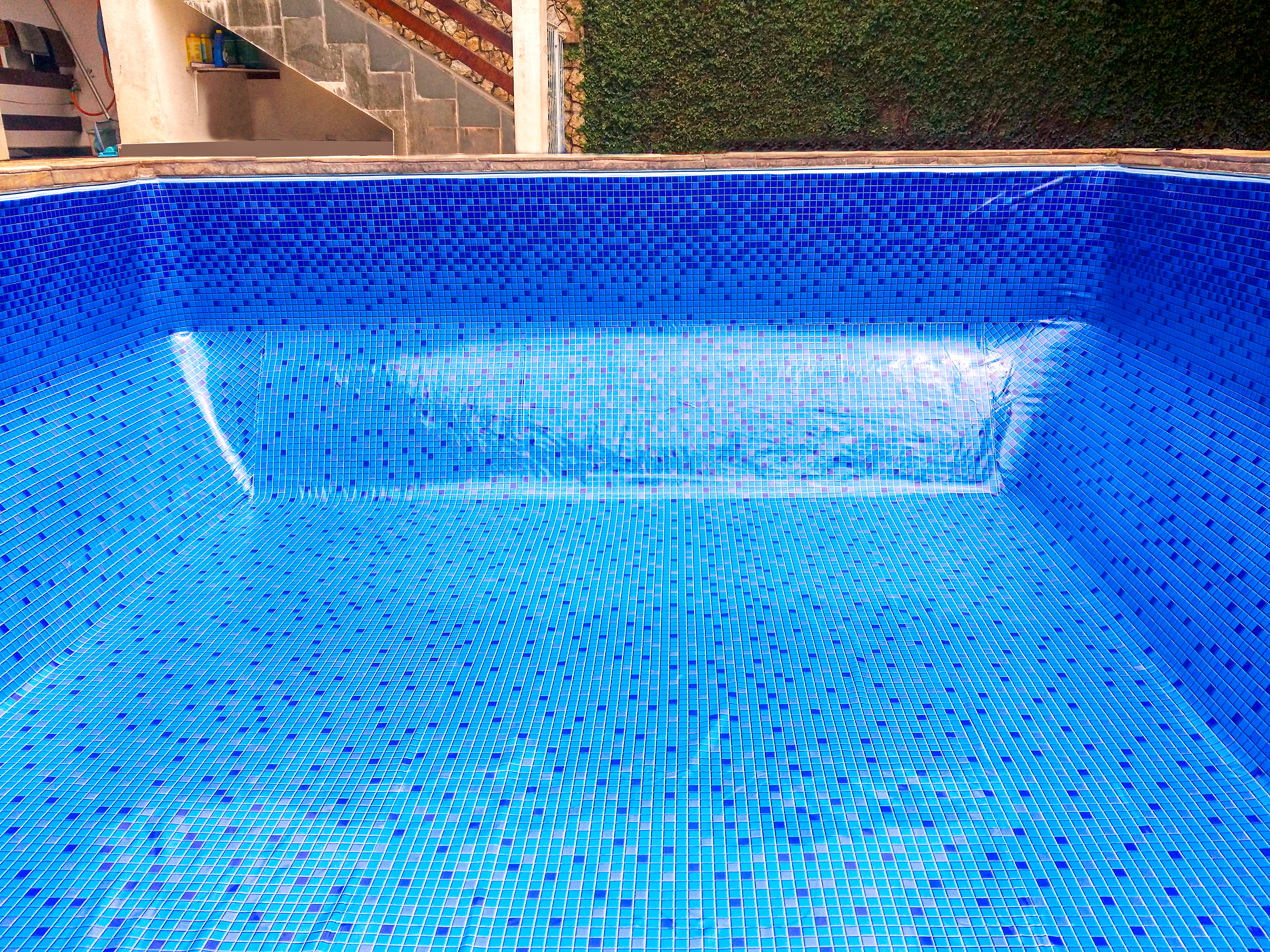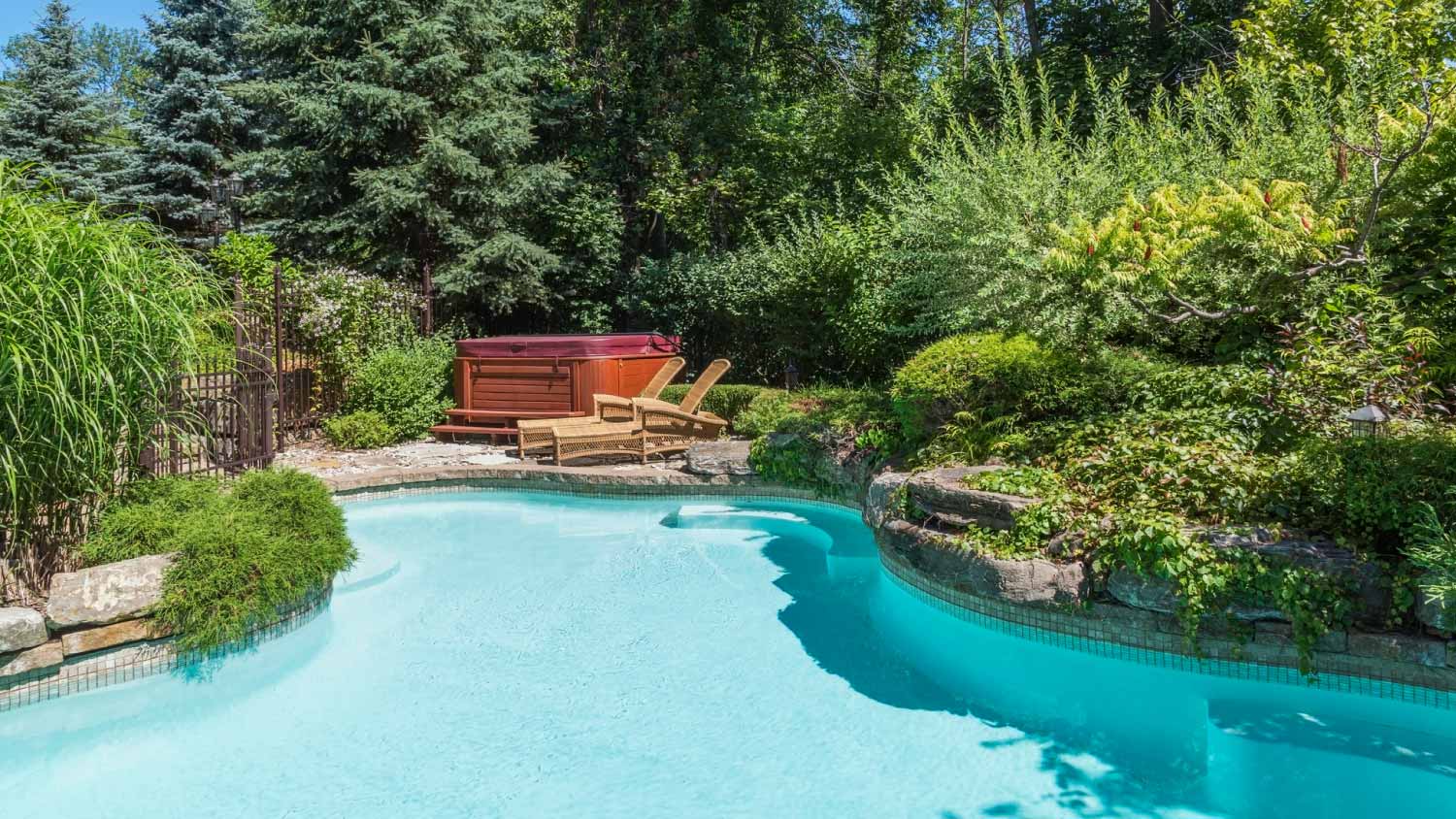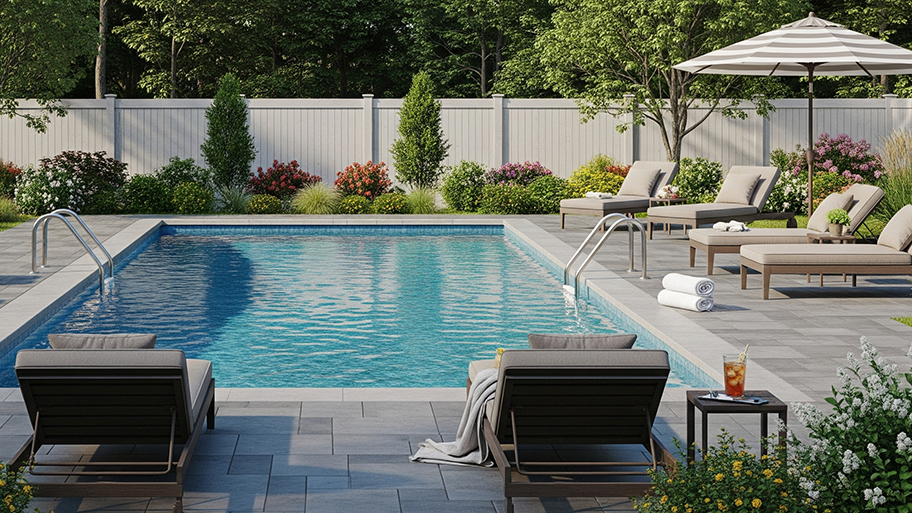
The cost of pool liner replacement in Columbus depends on the size and shape of your pool, as well as the liner material and type. Here’s how the costs break down.
Pick the perfect pool shape to suit your yard


Inground pools have a range of shapes, from rectangular to freeform.
Materials like concrete and vinyl have more shape options than fiberglass.
Round or rectangular pools are ideal for smaller spaces.
Adding a pool to your backyard means you can enjoy your property to the fullest every summer for years to come. When it comes to inground pools, though, the variety of choices for pool shapes can be overwhelming—how can you determine which is the best choice? Our guide to common inground pool shapes will walk you through each of the most common pool shapes and help you decide which is right for your home.
Materials will actually dictate your pool’s shape—but it matters a bit more for inground vs. above-ground pools. Certain inground pool materials have greater limitations:
Concrete: Concrete inground pools tend to work best with custom pool shapes. Your contractor can pour this material into virtually any design and add a range of pool finish materials like tile, plaster, or stone aggregate.
Vinyl: Vinyl liners come in a variety of inground pool shapes and sizes. You’ll need to make sure you purchase the correct shape and size for your pool idea, so you might be slightly limited depending on the brand.
Fiberglass: Fiberglass inground pools have the most size and shape limitations. These pools are pre-fabricated, so customization is limited.
For most homeowners, the cost of an inground pool is somewhere between $39,000 and $70,000—but elaborate, custom shapes can dramatically increase the price. Luckily, there are a lot of shapes and types of pools to choose from. Keep it budget-friendly with a basic rectangle or splurge on a high-end design carved into your landscaping.

There’s a reason rectangular pools are a classic. This shape suits all different types of inground pools—whether you’re looking for a lap pool, infinity pool, or spool. It’s the perfect balance of versatility and style. If you have a small yard, you can install a two-person plunge pool. If you have a longer yard, you can install a pool that’s perfect for swimming laps. On top of that, finishes like tile or stone can give your backyard a luxe look.
Curved pool shapes stem all the way back to the 1930s when pool designer Philip Ilsley helped popularize the style among his celebrity clients. Today, you don’t need to live in Hollywood to enjoy the way this shape packs a punch. Compared to a rectangular pool, rounded pools take up less space in your yard while providing a larger swim area.
Kidney-shaped pools are the pinnacle of mid-century modern backyard design. This shape harkens back to 1948 when landscape architect Lawrence Halprin designed one of the first kidney-shaped pools for the Donnell Garden, called the Donnell Pool. Today, this is one of the most popular high-end designs.
L-shaped pools are designed to wrap around the corner of a home or pool deck. This helps seamlessly integrate your pool into your backyard design—rather than looking like an afterthought. Depending on the depth, the shape can also help delineate a clear shallow and deep end.
Figure-eight-shaped pools are just what they sound like—they’re curved to look like the number eight. This design is similar to a kidney-shaped pool, with two wider round sections connected by a slimmer middle section. This shape is a great way to separate a deep end from a shallow end or work in a cool water feature.
Freeform pool shapes are organic or curvilinear shapes—basically, you won’t find any right angles. These designs are the middle ground between modern construction and a natural pond or tide pool. Plus, the design possibilities are endless. You can even design the curves to work around your existing landscape features. Keep in mind, not all types of pool covers will work with freeform designs.
Geometric pools feature hard angles and straight lines. You’ll often see these pools with vanishing edges or square hot tubs. This type of pool works well with modern or contemporary homes, playing off the angular look. Pair with glass pool fencing for an ultra-modern look.
It doesn’t get much older than this. Grecian or Roman-style pools pay homage to the ancient baths of Europe. They typically have a curved area on the ends that’s ideal for jet features and seating.
If you want a custom-shaped pool—the sky’s the limit. You can choose novelty designs (like a heart, star, or moon) or something catered specifically to your home’s landscape design.
Keep in mind that a custom pool may require a custom pool cover. To get a full idea of the custom pool possibilities, contact an inground pool installer near you.
Choosing the right pool design for your home depends on a variety of factors. First, you’ll need to choose a shape that works with your yard. A round pool is a great option for a smaller yard, while an irregularly-shaped yard may call for a custom pool shape. Yards with tight usable space may be the perfect place for an L-shaped pool that wraps around the corner of the house.
Another factor to consider is your budget. Rectangular pools are not only less expensive to install, but you can often also use standard-sized accessories like covers, which will save you money as well. A custom pool will be much less budget-friendly, especially when you add in the cost of a custom cover. Also, some custom shapes might only be available in concrete, which will significantly increase the cost to build a pool.
When considering putting in a pool, it’s always a good idea to consult with a local pool installer to help you decide on the right pool shape for your yard. They’ll be able to make recommendations based on your yard, budget, and vision for your pool.
Mariel Loveland contributed to this piece.
From average costs to expert advice, get all the answers you need to get your job done.

The cost of pool liner replacement in Columbus depends on the size and shape of your pool, as well as the liner material and type. Here’s how the costs break down.

If you’ve been considering installing a new pool in the Buckeye State, this guide will help you understand inground pool costs in Columbus.

Many factors affect indoor pool costs. From different types and shapes to installation and maintenance, here’s what to consider when pricing out your project.

How much shock does my pool need? Here's how to calculate how much pool shock to add to your pool based on its overall water condition.

Dreaming of getting in those daily laps without tearing up your backyard? Here’s what to know about endless pool costs so you can plan your project.

Everything was going swimmingly, but now your pool heater is not working properly. Here are some troubleshooting tips to get you back in business.